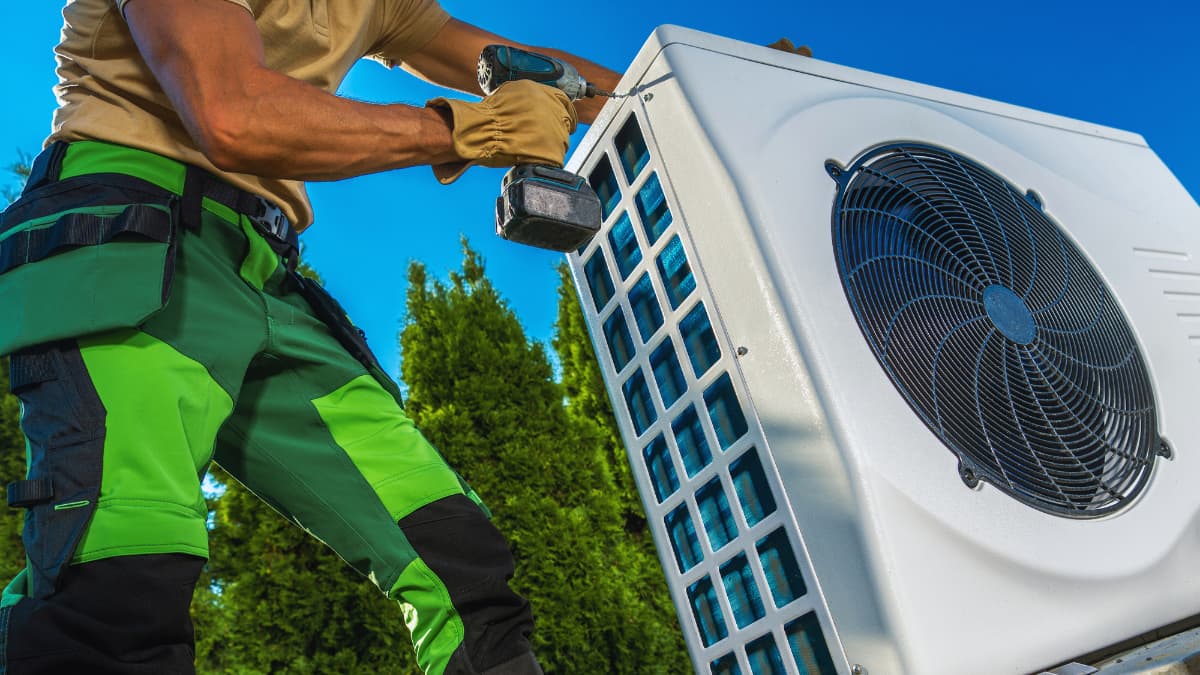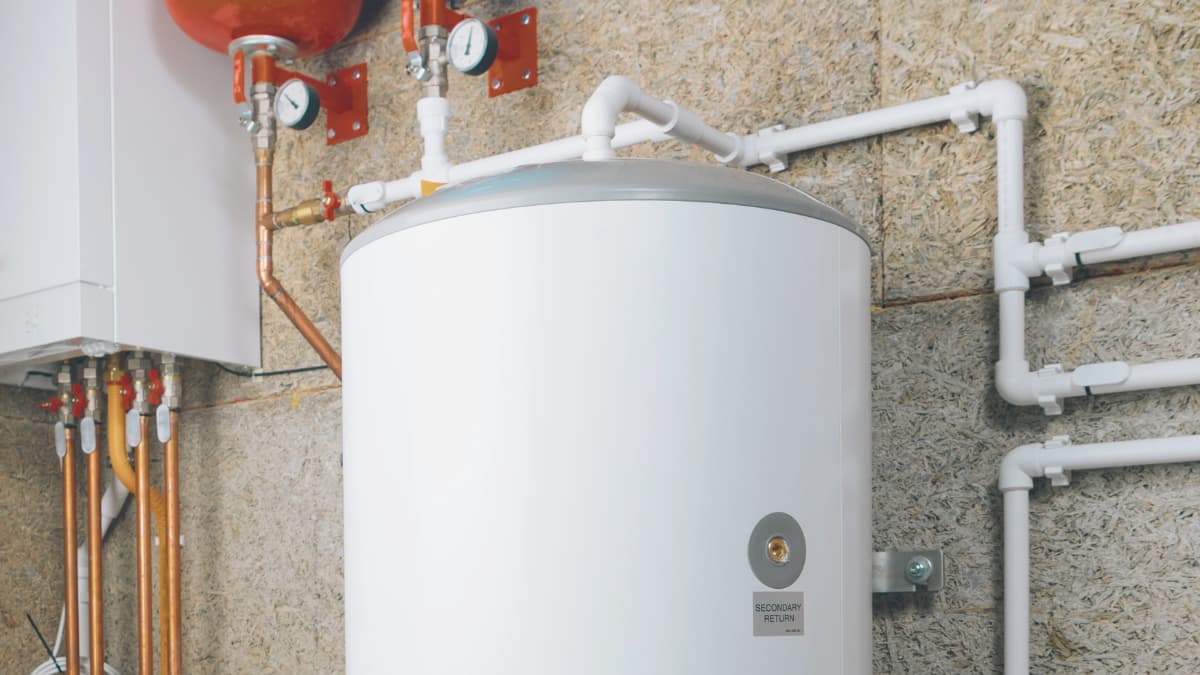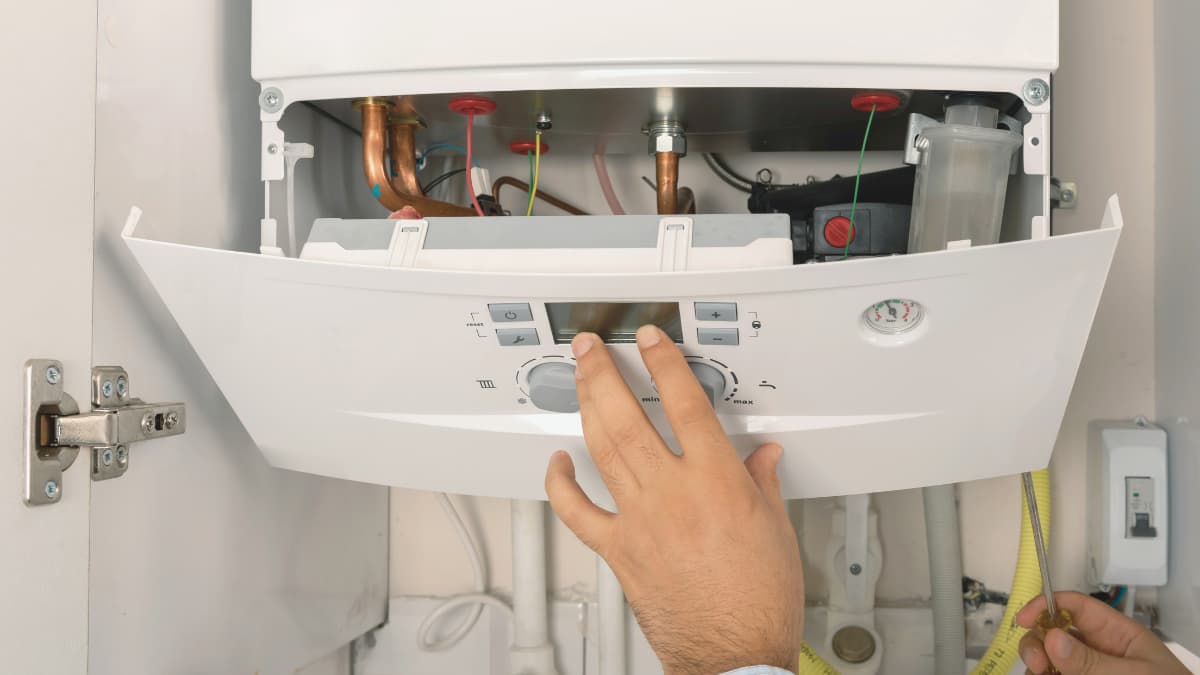As the UK transitions towards low-carbon heating solutions, heat pump systems are becoming a central feature of domestic and commercial energy strategies. For engineers working in the heating and plumbing sectors, gaining the skills to install and maintain these systems is not only timely but essential.
At Staffordshire Training Services, we offer both focused and combined training options. While focused courses allow engineers to specialise in either air or ground source heat pumps, the combined course delivers comprehensive coverage of both technologies in one programme.
For many professionals, the combined course presents a clear path towards acquiring broader skills, undertaking more varied project work, and fostering long-term confidence in the renewables sector.
Heat Pump Training
Heat pumps are increasingly being specified in new housing developments, retrofit projects and commercial properties. Government incentives, evolving Building Regulations and public demand for sustainable solutions are all driving the growth of this sector.
Installers who are trained in both air source and ground source systems are better placed to meet the full range of customer needs, from compact urban homes to larger rural properties. Offering both systems also allows engineers to make informed recommendations based on property type, site conditions and performance expectations.
Coverage Of Air and Ground Source Systems
The Combined Heat Pump Systems (Level 3) course covers both air and ground source heat pump technologies, with content accredited by LCL Awards and structured to reflect real-world installation demands.
The course includes:
- Air Source Heat Pump Systems
These systems extract heat from the air and are typically installed outdoors. They are suitable for a wide range of domestic properties and are often easier and quicker to install.
- Ground Source Heat Pump Systems
These draw heat from the ground via buried collector loops. They require more space and planning, but offer high efficiency over time and are well-suited to larger properties or new builds with external land availability.
Learners explore how each technology works, how to size and design the system, and how to safely install, commission and maintain it. Understanding the differences and practical considerations between the two technologies leads to more confident and capable engineers.
Increased Versatility For Installers
Completing combined training allows installers to expand their service offering and take on a wider range of projects. Rather than being limited to one type of system, qualified engineers can:
- Advise customers on the most appropriate technology
- Deliver installations in a greater variety of property types
- Offer full-service solutions to clients seeking renewable upgrades
This versatility makes engineers more valuable to employers, contractors and homeowners, particularly in competitive markets where clients expect tailored recommendations and expert guidance.
Improved Business Opportunities
Engineers trained in both technologies are better positioned to win contracts across domestic and commercial sectors. Whether working independently or as part of a growing team, the ability to install and maintain both air and ground source systems creates opportunities to:
- Secure work on housing developments with mixed system requirements
- Deliver complete services for high-efficiency home retrofits
- Partner with renewable energy consultants and property developers
- Build a reputation for expertise in low-carbon heating systems
Training in both technologies also allows businesses to diversify their offering and respond to seasonal trends or shifts in local demand.
Stronger Foundation For MCS And CPS Schemes
Many engineers completing the combined course aim to register with industry-recognised schemes such as:
- MCS (Microgeneration Certification Scheme)
- CPS (Competent Person Schemes)
These schemes are increasingly required for contractors involved in publicly funded or certified work. Holding both air and ground source qualifications enhances your professional profile and increases your eligibility for scheme membership.
The Combined Level 3 qualification at Staffordshire Training Services meets the necessary training standard to support MCS applications, providing an important stepping stone for those wanting to grow in the renewables space.
Practical Time And Cost Benefits
One of the most practical advantages of combined training is efficiency. Rather than booking two separate courses, the combined programme enables engineers to complete both qualifications in a single four-day session.
This approach reduces:
- Total training time away from work
- Overall course costs compared to two bookings
- Time spent navigating entry requirements and repeat assessments
It is an ideal choice for professionals seeking to maximise their time while acquiring comprehensive knowledge across both systems.
Future-Proofed Career Development
Heat pumps are central to the UK’s long-term energy strategy, with widespread adoption expected to increase over the next decade. Engineers with training in both system types are prepared to adapt as technologies evolve and market expectations shift.
Completing the combined course also provides a strong foundation for further development in related areas, including:
- Energy Efficiency for Domestic Heating and Hot Water Systems (Level 3)
Supports correct system design and compliance with Part L of the Building Regulations.
- Low Temperature Heating and Hot Water Systems (Level 3)
Focuses on design for maximum efficiency when working with heat pump systems.
- Solar Thermal Hot Water Systems (Level 3)
Allows engineers to broaden their renewable energy offering further.
By taking a proactive approach to learning, engineers can ensure their services remain relevant, competitive and compliant in a rapidly changing market.
Support From Staffordshire Training Services
Our Combined Heat Pump Systems (Level 3) course is delivered from our dedicated training centre in Stafford. Every session is led by experienced, qualified instructors who have worked in the industry and understand the challenges engineers face.
The course is suitable for plumbers, heating engineers, and gas installers who hold:
- A valid Water Regulations Certificate
- Relevant industry qualifications in plumbing or heating
We welcome candidates from all training backgrounds. Whether you are returning to study or building on years of experience, you will receive expert support and clear guidance throughout your training.
Expanding Your Role In Renewable Heating
Training in both heat pump technologies is a smart move for any engineer looking to expand their skill set, grow their business and stay ahead in a changing industry. The renewable energy training courses offers clear benefits in terms of versatility, credibility, and value for time.
Whether you are looking to add to your existing qualifications or begin your renewable energy journey, Staffordshire Training Services is here to help you move forward with confidence.
Related Articles
- Choosing Between Combined or Focused Heat Pump Training
- Quick Heat Pump Guide for Installers
- Adding Renewables to Your Heating Business
- Careers in Renewable Energy for Gas and Heating Engineers
- The Future of Heating with Renewables
Prefer an AI Summary?



